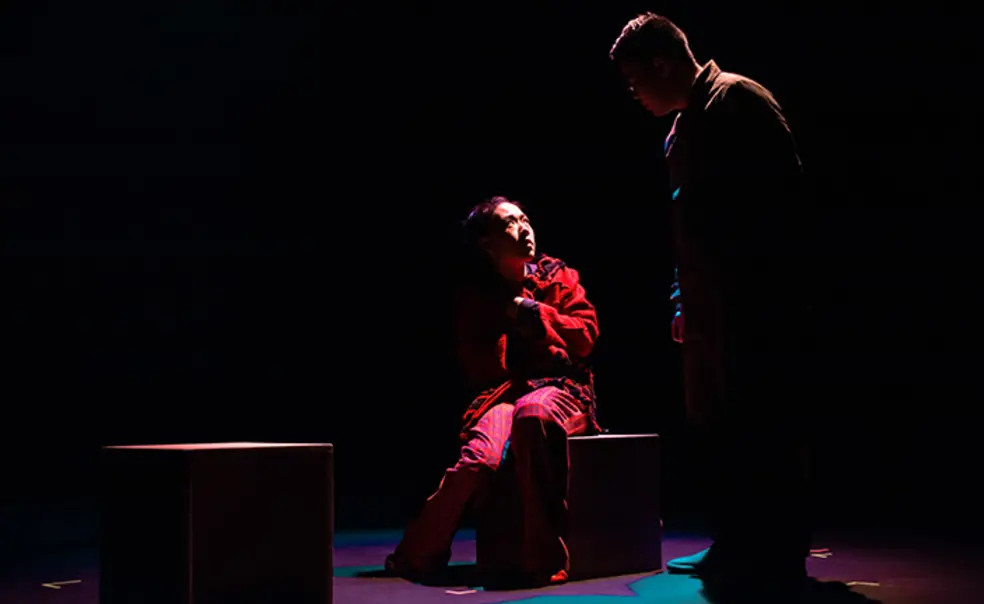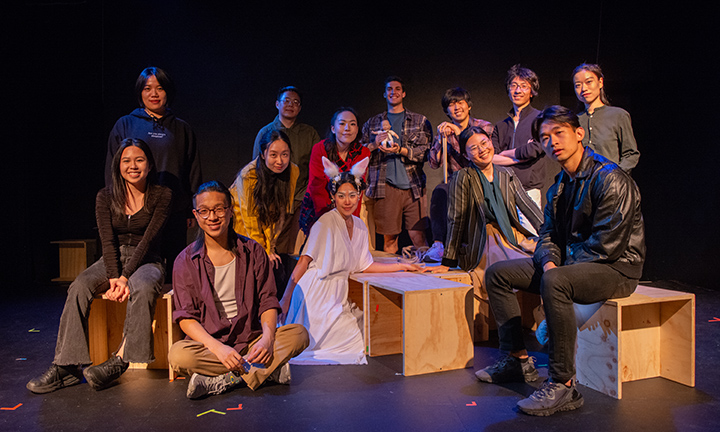Three Princeton Chinese Theatre Alumni Launch New Company in NYC
Carving their own space in the theater industry, these alumni founded Cellunova to “tackle social challenges”
Princeton Chinese Theatre alumni Changshuo Liu ’19, Jianing Zhao ’20, and Jiaxin Guan *23 have founded a new theater company, Cellunova, in New York City.
On paper, the trio seems unlikely to launch a theater venture — Liu is a quantitative researcher, Guan is a faculty fellow in computer science at NYU, and Zhao is a law student at Cornell. But they have important things in common, including a wish to continue producing plays after Princeton, and a belief that theater can be a force for the common good.
Established as a nonprofit, Cellunova aims to “create interdisciplinary theater to tackle social challenges,” according to the mission statement on its website. This summer, it debuted with The Match Girl, directed by Zhao and written by Liu, in which 16-year-old Meimei in China confronts human trafficking.
“It’s a great way to continue doing theater outside of Princeton because when you graduate, you don’t have that many chances to do theater,” says Guan, who acted in the play. “Usually people imagine that you will need to be [in] a professional theater production company where you’re getting paid [for] such activities.”
In the theater industry right now, there are many more people seeking to participate than there are opportunities for them to do so, Liu says. It is this imbalance that motivated the creation of Cellunova. Instead of having their artistic vision dictated by external producers, the founders decided to step into the supply side by creating a company that meets in person and works remotely to produce theater shows.
The name Cellunova, inspired by the potential of a small cell to burst forth into diverse realms of ideas, is symbolic of the company’s ethos. Financed through a combination of family contributions, donations from Princeton alumni, and other sources, the company operates largely on the efforts of its volunteers and paid actors. The lion’s share of the value in their productions, Liu emphasized, is derived from the investment of time made by these volunteers and professionals.
In the process of directing the actors, the directors are also learning to establish their brand as a professional company. “There are habits of professional actors — a lot of things they do and a lot of things they don’t,” Guan says. “For example, the professional actors drew to our attention that before each run-through, we will have a fight call to go through all the physical fights. This was definitely something new to us, but we adapted, learned about it, and arranged for it to happen every time.”
Cellunova’s ambition is to stage three to four original plays annually. This marks a departure from the style of Princeton Chinese Theatre, which adapted classical works while the three were students.
“Part of what made Princeton Chinese Theatre so special was, one, it’s a group of very talented, committed people, and two, the resources we had,” Zhao says. “Even though it was not huge, it was actually really good to have this kind of support from Princeton — a space, a budget, and a community for our friends willing to come to our show.”
It’s been harder without that collegiate support, she says. “So part of Cellunova is both to rebuild this community of bright, talented, committed people and to create this infrastructure again.”
Since the theater welcomes volunteers and actors to work in a part-time capacity, Guan says people based in New York City or elsewhere can join the team. The company needs in-person actors but also a remote administrative team to make shows happen. The company has an office in Manhattan.
“With the costs of living rising in New York … the theater industry in New York is definitely struggling and witnessing all these small theater closures,” says Liu. “I really hope Cellunova will be a platform for future emerging artists.”













No responses yet